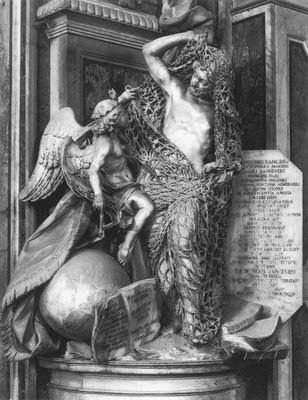This looks very interesting. Christian Focus have just released Philip Ross'
From the Finger of God: The biblical and theological basis for the threefold division of the law
This book investigates the biblical and theological basis for the classical division of biblical law into moral, civil, and ceremonial. It highlights some of the implications of this division for the doctrines of sin and atonement, concluding that theologians were right to see it as rooted in Scripture and the Ten Commandments as ever-binding.
More
here
"A book of great relevance with an immensely important message for the contemporary church, From the Finger of God is to be welcomed with open arms. It is a fine example of careful, readable biblical, theological, and historical scholarship that leads to deeply satisfying conclusions."
"Philip Ross has dealt with issues lying near the heart of the Christian life (and indeed, of the healthy functioning of any human society) in this careful, fair, and, at times, humorous (or at least, entertaining and attention-holding) study of the continuing validity of God's law... I will be frequently referring to his volume in my classes, and warmly commend it
Douglas F Kelly ~ Richard Jordan Professor of Theology, Reformed Theological Seminary, Charlotte, North Carolina
"The question dealt with in this book is the relationship between the laws and requirements of the Old Testament and those of the New. Are these still obligatory on the New Testament Church? In dealing with this question the author suggests a threefold classification, and provides a very full analysis of the arguments in favour of that classification from many authors down through the centuries, as well as of those who write against that classification. I commend it to all who wish to live by the Scriptures."
"This book is a valuable contribution to discussion about the question of the nature of the unity of biblical law in the context of the diversity of its threefold historical function. It demonstrates how the finality of the person and work of Christ is the crux of the matter and how the atonement has law as its background. A readable presentation of the biblical data relevant to the subject that leaves no stone unturned."
Paul Wells ~ Professor of Systematic Theology at Facult' Libre Theologie Reformee in Aix-en-Provence, France.
"Like me, you may never have thought that the division of the Law into the categories of civil, ceremonial and moral needed prolonged enquiry. When you read this book you will be glad that Dr. Ross thought otherwise. The book would be worthwhile if only for the discussion of the Decalogue or of the fulfilment of the Old Testament in the New , but there is something for the Bible lover on every page, as well as a demanding but readable opening up of a huge area of biblical enquiry, that takes us with profit from Genesis through to the Lord Jesus and his apostles. A real and rewarding mind-opener."
Alec Motyer ~ Well known Bible expositor and commentary writer
"In recent times, little has weakened biblical theology more than the tendency to collapse all the rules and statutes of the Old Testament into one uniform corpus of law material. In this timely and extremely helpful study, Dr Philip Ross demonstrates not only that the division of the law into moral, civil and ceremonial categories arises out of a natural reading of the biblical text, but that its adoption in Patristic, Reformed and Puritan literature shows it to have been the orthodox position of the church. To lose this confessional distinctive is to drive an unbiblical wedge between the Testaments, and to eviscerate the gospel itself. Unless the moral law is still in force, how can we define sin? And unless we can define sin, what gospel can we preach? Dr Ross's work is an important corrective to much misunderstanding on the nature and place of God's law in the Bible, and a reliable guide both to the primary and secondary literature on the subject."
"It is a given for scholars in a variety of allied disciplines (e.g., biblical studies, systematic theology, Christian ethics) that the ancient Christian distinction between the civil, ceremonial, and moral laws is without foundation. Philip Ross dissents from the consensus and he does so thoughtfully, lucidly, and wittily. Those who are new to the question and those are willing to reconsider their views will find in Ross an able guide through the labyrinth."
R. Scott Clark ~ Professor of Church History and Historical Theology, Westminster Seminary, Escondido, California
"This is one of the most important theological books to be published for several years. And it is a book which is desperately needed and which should be read by pastors and church leaders worldwide as a matter of urgency."
Eryl Davis ~ Head of Research, Wales Evangelical School of Theology, Bridgend, Wales
"Elegantly written, this work is an impressive achievement in biblical studies combining systematic clarity with exegetical analysis."
Theodore G. Stylianopoulos ~ Archbishop Professor of Orthodox Theology and Professor of New Testament (Emeritus) Holy Cross Greek Orthodox School of Theology, Brookline, Massachusetts
"In this remarkable work Dr. Philip Ross studies the threefold Division of the Law as traditionally held by the Reformed, Orthodox and Catholic Churches and establishes this framework to be scripturally based. Ross's study is a welcome contribution to this topic especially in the context of challenges to this formulation from several modern authors who reject it as non-biblical, challenges which this study effectively refutes. This study is to be commended not only for its scholarly rigor but also for its ecumenical relevance."



















